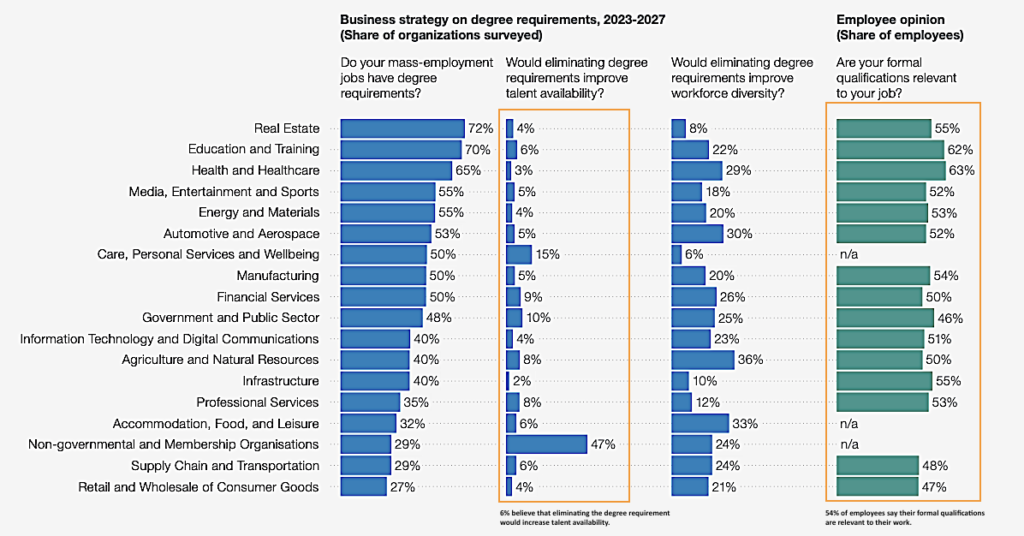Certainly, the inquiry into whether a college degree guarantees success on the job has become pivotal as organizations navigate a dwindling pool of critical talent. The trajectory of economic growth hinges on the resilience and productivity of labor markets, which must adeptly align human capital and the integration of new technologies. However, labor markets are progressively tightening due to structural factors such as a shrinking working-age population, shifts in job dynamics and skill development requirements stemming from economic trends, the green transition, and artificial intelligence advancements. Neglecting these shortages could potentially reshape business growth trajectories and impede technological progress. Thus, understanding the correlation between possessing a college degree and achieving workplace success holds profound significance in today’s rapidly evolving professional landscape.
Virtually every industry wrestles with the challenge of accessing talent, surpassing concerns related to employee retention or development. According to the “Putting Skills First” Insight Report by the World Economic Forum, a mere 39% of businesses express optimism about talent availability in the next five years, lagging significantly behind positive expectations regarding talent retention (53% of organizations) and talent development (77% of organizations). This pessimistic outlook is particularly pronounced in industries such as Supply Chain and Transportation, Health and Healthcare, Manufacturing, and Retail.
The scarcity of individuals possessing critical, in-demand skills acts as a hindrance to business growth, obstructs economic prosperity, and curtails individuals from realizing their full potential. In light of these challenges, should employers reconsider their narrow emphasis on using educational attainment as a proxy for on-the-job skills? Put differently, does holding a secondary degree accurately forecast a person’s performance at work, or do such requirements exclude valuable talent that could contribute significantly to the workplace?
Of the surveyed organizations mandating a degree (47% of total), a mere 6% believe that eliminating this requirement would enhance the availability of talent, whereas 54% of workers feel that their qualifications are pertinent to their roles.

World Economic Forum, Future of Jobs Survey 2023; PwC, Hopes and Fears Survey 2023
While highly specialized fields may offer limited flexibility, does a formal education requirement perpetuate talent scarcity and exclude individuals who could otherwise be substantial assets in the workplace? Resolving labor shortages, addressing skills gaps, and arming workers with skills for future jobs is essential in cultivating a resilient and productive workforce.
7 Tips to “Put Skills First”:
- Highlight Real-World Experiences: Showcase examples of successful individuals who have excelled in their careers by focusing on skills rather than traditional academic achievements.
- Emphasize Adaptability: Connect the idea to the need for lifelong learning and staying relevant in an evolving professional landscape.
- Acknowledge Different Learning Styles: Highlight that skills can be developed through various means, including hands-on experiences, workshops, and online courses.
- Focus on Actual Skills Needed: Share how a focus on skills can enhance employability by directly addressing the practical needs of role.
- Involve Stakeholders: Highlight the collaborative efforts and partnerships that can emerge from this shift.
- Connect to Global Trends: Discuss how this approach aligns with global trends in education and employment, emphasizing the need for a global skill set.
- Create Engaging Campaigns: Develop engaging and visually appealing campaigns to promote the idea across various platforms.
Also, for more workforce intelligence insights like this, subscribe at www.thedigitalhumanity.com or email contact@thedigitalhumanity.com.